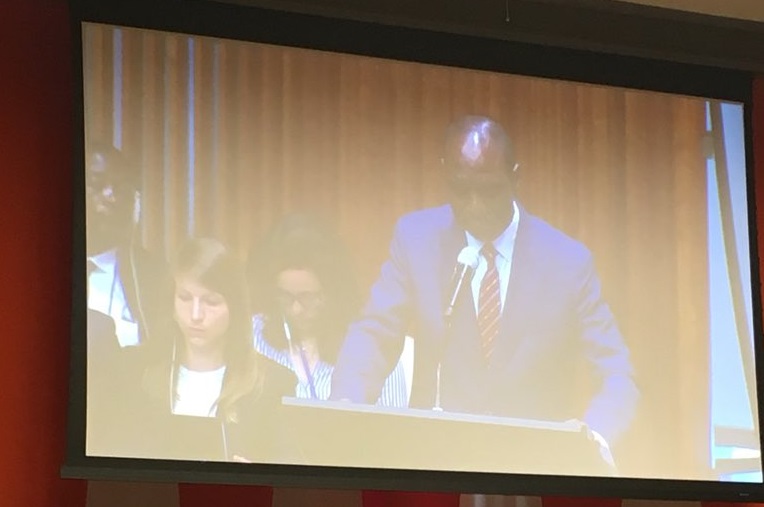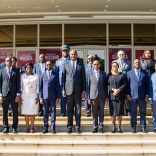Mozambique: Prime Minister heads to China for Global Leaders’ Meeting on Women in Beijing
PM calls for resilience against climate change

Photo: Social Media
The advent of climate change is increasing the frequency and intensity of the cyclones that hit Mozambique, and hence the country is adopting various measures of adaptation and resilience to cope with the phenomenon, according to Prime Minister Carlos Agostinho do Rosario.
He was speaking in New York, during the Fourth Special Thematic Session of the United Nations on Water and Disasters. Rosario was addressing a special session on the theme “Rebuilding better after Cyclones Idai and Kenneth (which hit Mozambique in March and April) – Lessons Learned and Actions to Reduce the Impact of Climate Change”.
The purpose of the meeting was to share the experiences of the countries affected by the cyclones (Mozambique, Zimbabwe and Malawi). Rosario said that Idai and Kenneth, following each other in such a short space of time, led the country to draw various lessons.
“We advocate that reconstruction after Idai and Kenneth should take into account the need for BBB – Build Back Better – so that the infrastructures resist the effects of extreme events”, said Rosario.
The government has thus called for prioritising the construction of public and private infrastructures that are resilient and adapted to climate change. Of particular importance is investment in water management infrastructures such as dams, dikes, reservoirs, protection against coastal erosion, and drainage systems.
Rosario pointed out that Mozambique lies on the downstream stretch of nine of southern Africa’s 15 major river basins, making the country vulnerable to floods in the rainy season, and to drought in the dry season.
He said the government does not want to mobilise resources simply to rebuild the same infrastructures that were destroyed in the two cyclones. Instead, it hopes to emerge from the vicious cycle that is holding back the country’s development. That meant that all stakeholders are challenged to keep at the top of their agendas measures concerning resilience and adaptation to climate change, including how to finance them.
Among the lessons learnt, he added, was the need for government leadership to avoid the loss of human life, through early warning systems, and search and rescue operations.
Cyclones Idai and Kenneth affected directly about two million people in Mozambique, and laid waste many thousand hectares of farmland. A video shown at the New York meeting left the audience incredulous at the scale of the suffering and devastation.
Rosario said that, in the search and rescue operations, the major challenge Mozambique faced was a shortage of helicopters and boats to rescue people stranded on rooftops and in trees as the flood waters rose. Hence the government hopes to work with international partners to endow the country with the means that will allow it to rescue people at risk in good time.
He reiterated Mozambique’s desire to count on the support of the international community to mobilise resources to repair, in a short space of time, the damaged roads so as to encourage economic activity and ensure that farmers can more their surplus crops to market.
For his part, the Zimbabwean Minister of Local Government, Public Works and Housing, July Moyo, said that the death toll from cyclone Idai in Zimbabwe was 347. The disaster occurred when the country was already suffering from a severe drought that affected Zimbabwean food production for the 2018-19 agricultural year. The cyclone added a further 900,000 people to the five million who were already in need of humanitarian aid.
Reducing the risk of disaster had thus become an integral part of development planning, said Moyo, and the Zimbabwean government is working with research institutes and development partners on risk assessment and mapping the foci which can cause tragedy in the event of cyclones, which he too believed would become more frequent and more intense.












Leave a Reply
Be the First to Comment!
You must be logged in to post a comment.
You must be logged in to post a comment.